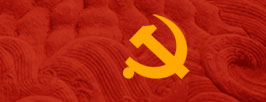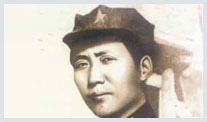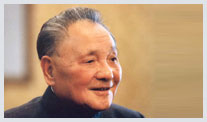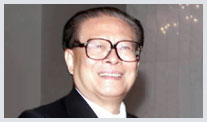|
Learning pushes China's publishing industry development 
|
| 2002-10-30 15:36:09 |
For the past 10 years, the publishing industry has seen rapid growth in China. Novels and management and economics books can go from the international bestseller lists to translation and publication in China within 12 months. Every year, several book fairs are held in major cities. And every year, the book trade generates around 3 billion US dollars in revenue.
 Even a frequent book-buyer might be overwhelmed by the scene - an empire of books. Books on literature, on exploration, on art, on history, all lying on the floor, stored on the shelves, being hauled around in trunks. This is a wholesale book market, where the nation's publishers show off their latest offerings and wait for buyers.
Even a frequent book-buyer might be overwhelmed by the scene - an empire of books. Books on literature, on exploration, on art, on history, all lying on the floor, stored on the shelves, being hauled around in trunks. This is a wholesale book market, where the nation's publishers show off their latest offerings and wait for buyers.
Let's look at the Commercial Press. Founded in 1897, it was the first modern publisher in China. It published Huxley's Evolution and Ethics in 1905, under the title, Evolution of Heaven. This was an attempt to relate it to Confucian values. Translated by the great thinker Yan Fu, the book influenced several generations. Even a certain 96-year old grandmother still remembers the famous phrase "survival of the fittest." Right or wrong, publishers can have great impact, as can new knowledge and new ideas.
 "In the last 20 years alone, we've published nearly 400 classic titles. For more than 100 years, the Commercial Press has been dedicated to introducing classic and modern thoughts and ideas from around the world to China," said Li Lianke, deputy editor-in-chief of Commercial Press.
"In the last 20 years alone, we've published nearly 400 classic titles. For more than 100 years, the Commercial Press has been dedicated to introducing classic and modern thoughts and ideas from around the world to China," said Li Lianke, deputy editor-in-chief of Commercial Press.
China is now in an era of new knowledge. It's pushed by thousands of publishers and bookstores around the country. The motto for some today's urban young workaholics is not "Survival of the fittest" but rather, to borrow from the title of a book by Intel's Andrew Grove, "Only the Paranoid Can Survive."
 "Nowadays we have more choices, both in topic and in point of view. Lots of young people are buying books to learn foreign languages and computer science on their own, or comic books and bestsellers for pleasure," said Wu Lehua, vice chairman of China Society of Overseas Chinese History.
"Nowadays we have more choices, both in topic and in point of view. Lots of young people are buying books to learn foreign languages and computer science on their own, or comic books and bestsellers for pleasure," said Wu Lehua, vice chairman of China Society of Overseas Chinese History.
A young man is buying a history of the Silk Road and a book on computer graphics. He told us why. "My major is computer science. That field changes every week and my friends and I have to keep up with it," he said.
In these times of economic globalization, when some newspapers seem obsessed with MBA, CPA, TOEFL, and the like, other people still enjoy the Chinese greats: Confucius, Yan Fu and Lu Xun. Touring Beijing's bookstores calls to mind a slogan from the old days pasted on the elementary school classroom wall: Knowledge is power.
|
|










